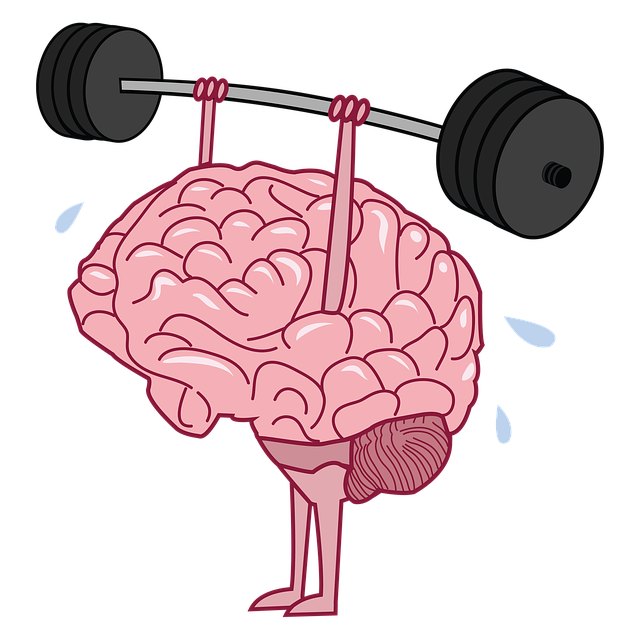Public awareness campaigns using diverse media, including social media and community events, effectively educate communities about mental health, dispel myths, reduce stigma, and reach hesitant individuals. Englewood Stress Management Therapy can showcase coping strategies, promote self-care routines, and emphasize emotional healing processes through interactive, therapeutic campaign designs featuring mindfulness exercises, cognitive behavioral strategies, storytelling, and peer support networks. Evaluating campaigns' impact on stress levels, mental health awareness, and crisis intervention skills through pre- and post-surveys plus long-term behavioral shifts ensures their effectiveness and guides future strategy refinement for initiatives like Englewood Stress Management Therapy.
Public awareness campaigns play a pivotal role in mental health initiatives, fostering understanding and promoting well-being. This article explores the development and impact of such campaigns, focusing on strategies that engage target audiences effectively. We delve into case studies highlighting successful approaches, particularly with Englewood Stress Management Therapy, showcasing how tailored campaigns can reduce stress and enhance community resilience. By evaluating key metrics, we measure the success and long-term benefits of these initiatives.
- Understanding Public Awareness Campaigns and Their Role in Mental Health Initiatives
- Strategies for Effective Campaign Development: Engaging the Target Audience with Englewood Stress Management Therapy
- Measuring Success: Evaluating the Impact of Public Awareness Campaigns on Stress Management and Community Well-being
Understanding Public Awareness Campaigns and Their Role in Mental Health Initiatives

Public awareness campaigns play a pivotal role in advancing mental health initiatives by educating communities and fostering open dialogue. These campaigns serve as powerful tools to dispel myths, reduce stigma, and encourage individuals to seek support for their emotional well-being. Through various mediums like social media, community events, and public service announcements, they reach a wide audience, especially those who might otherwise be hesitant to discuss mental health issues.
In the context of Englewood Stress Management Therapy, awareness campaigns can highlight effective coping strategies and promote self-care routines for better mental health (Self-Care Routine Development for Better Mental Health). By emphasizing emotional healing processes, these initiatives encourage individuals to take proactive steps towards managing stress and improving their overall psychological resilience.
Strategies for Effective Campaign Development: Engaging the Target Audience with Englewood Stress Management Therapy

Developing effective public awareness campaigns requires a deep understanding of the target audience and their unique needs. When it comes to promoting emotional well-being, Englewood Stress Management Therapy offers a powerful approach. This therapy focuses on engaging individuals in an interactive process that empowers them to manage stress and improve mental health. By incorporating therapeutic techniques into campaign design, such as mindfulness exercises and cognitive behavioral strategies, public awareness campaigns can be transformed into meaningful experiences.
Mental Health Education Programs Design should not only inform but also inspire action. Incorporating emotional well-being promotion techniques like storytelling and peer support networks can create a sense of community and encourage open dialogue. In today’s fast-paced world, where stress is prevalent, effective campaigns that utilize Englewood Stress Management Therapy have the potential to revolutionize how people approach their mental health, fostering lasting positive change.
Measuring Success: Evaluating the Impact of Public Awareness Campaigns on Stress Management and Community Well-being

Evaluating the impact of public awareness campaigns on stress management and community well-being is a crucial step in understanding their effectiveness. Measuring success goes beyond simple reach or attendance figures; it involves assessing tangible improvements in participants’ lives. By incorporating metrics that capture changes in stress levels, mental health awareness, and crisis intervention skills, organizations can gauge the true value of these initiatives. For instance, surveys before and after campaign engagement can help track reductions in reported stress and anxiety, indicating enhanced coping mechanisms within the community.
Moreover, examining long-term behavioral shifts and participation in follow-up programs like Englewood Stress Management Therapy or Crisis Intervention Guidance sessions reveals sustained interest in inner strength development. These evaluations provide insights into how public awareness campaigns contribute to building resilient communities where individuals are better equipped to navigate life’s challenges. Such data is instrumental in refining future strategies, ensuring that efforts remain relevant and impactful.
Public awareness campaigns, such as those focusing on mental health initiatives, play a pivotal role in educating communities and fostering well-being. The article has explored strategies for developing engaging campaigns, highlighting the success of Englewood Stress Management Therapy in reaching target audiences. By measuring the impact through evaluation, we can refine these campaigns to promote effective stress management and enhance community resilience. This iterative process ensures that efforts like Englewood Stress Management Therapy continue to resonate and make a lasting difference.










